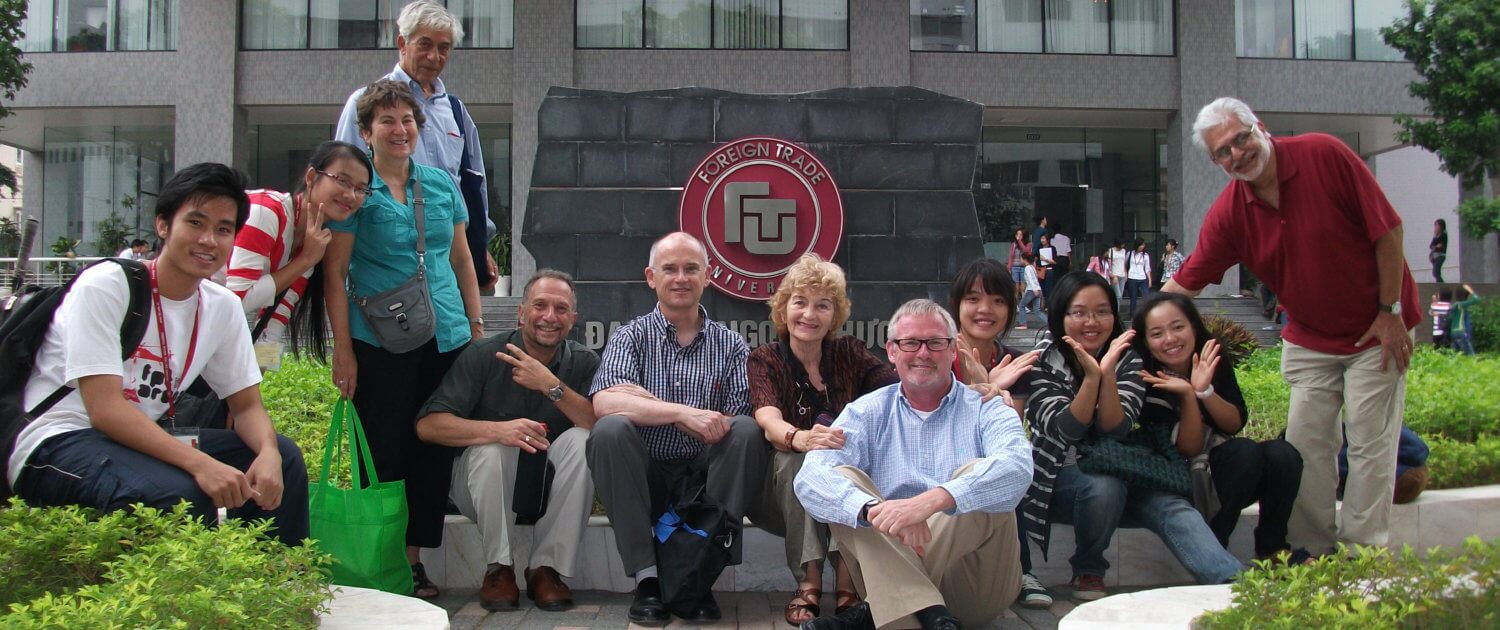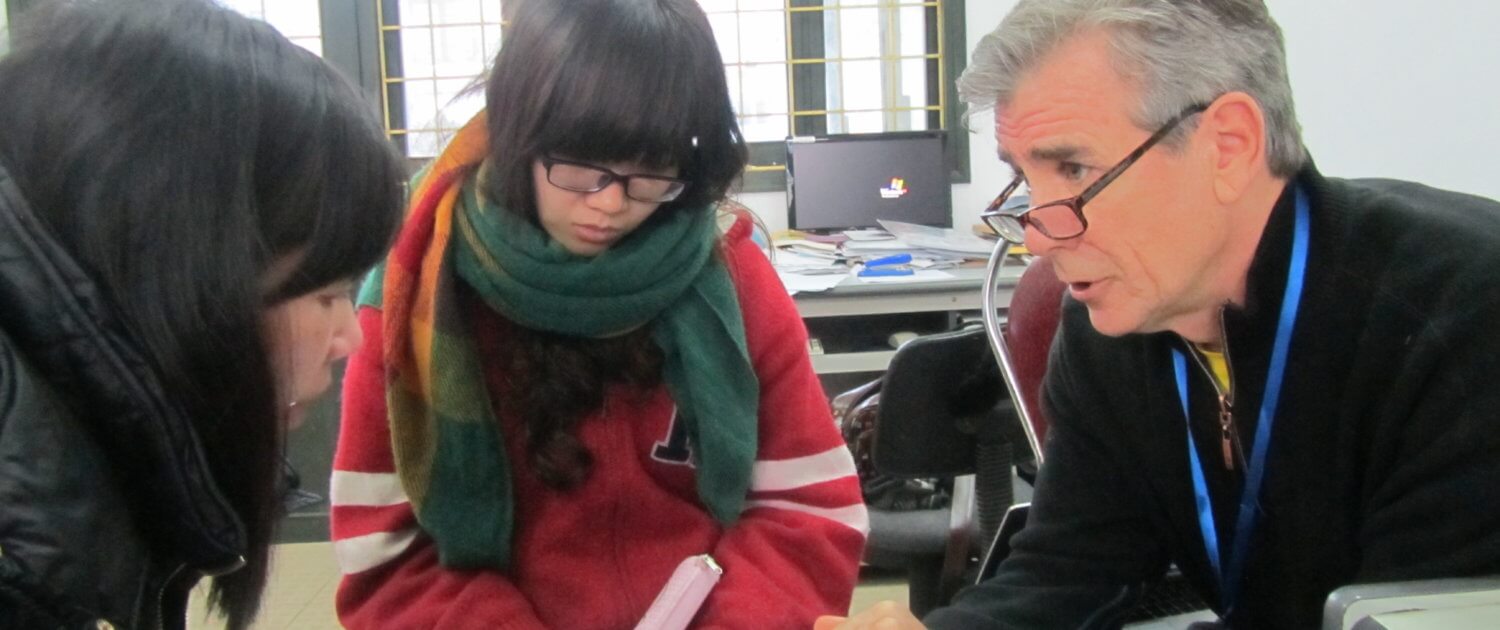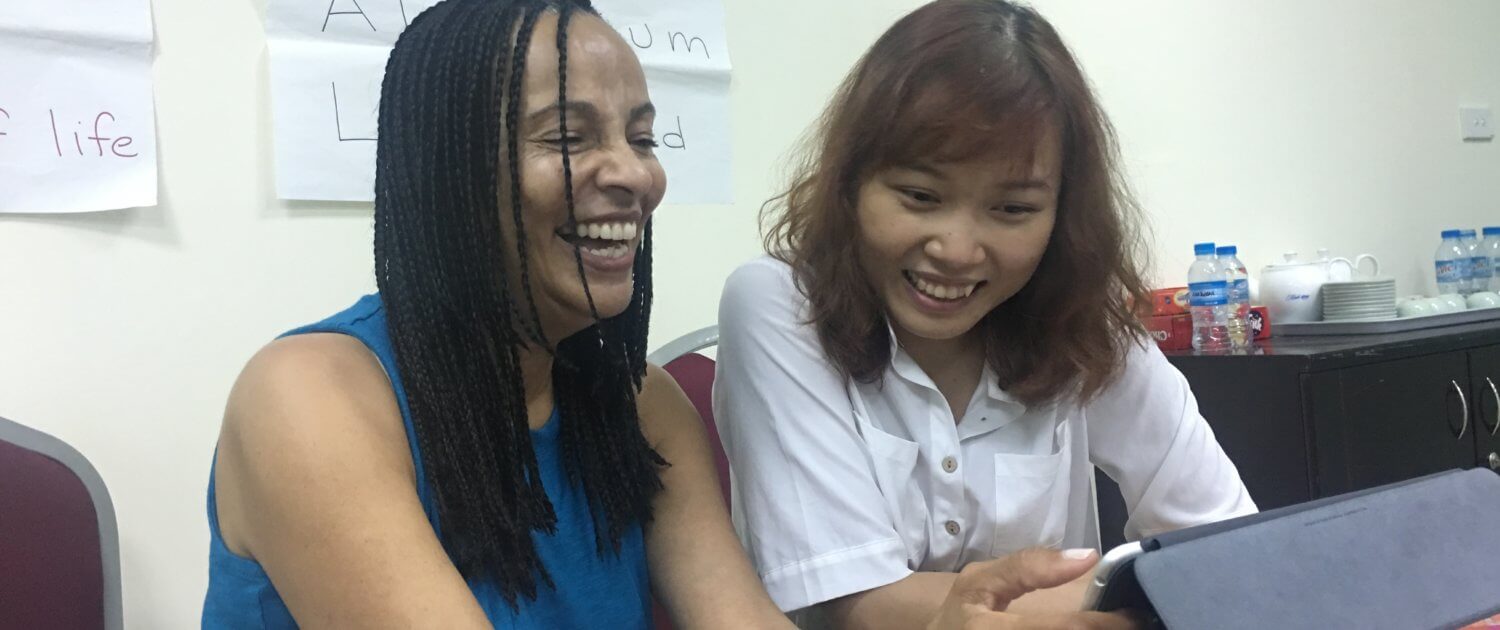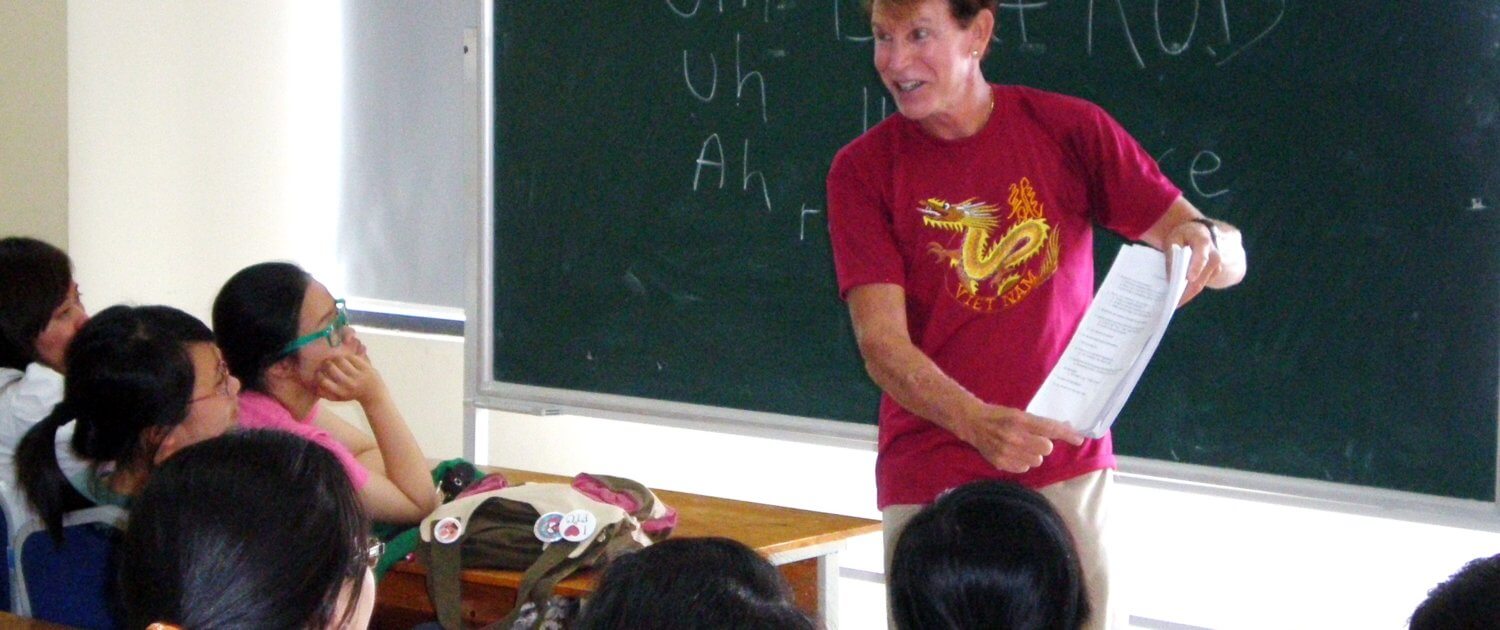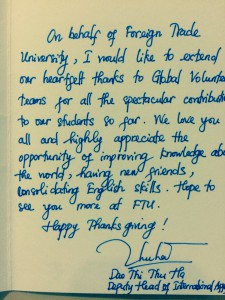Something “special” happens when Global Volunteers teams work in Vietnam! Business students at Foreign Trade University in Hanoi gain a singular advantage in working with Global Volunteers, according to school administrators. And, volunteers come away with a feeling they’ve truly invested in the future of an emerging society of leaders, according to program evaluations.
In a meeting with Global Volunteers CEO Bud Philbrook, Dr. Hue, Dean of Business English and Dr. Hoa, Dean of English for Specific Purposes, reiterated their commitment to our partnership, and appealed for more volunteers on upcoming teams.
“Our volunteers are greatly appreciated and valued,” Philbrook reported. “This is an outstanding opportunity for anyone wanting to teach practical English skills to young adults. The students are eager to learn, the campus is welcoming, the teachers are supportive, and the subject is one that most anyone can teach.”
Volunteer Tom Leach explains business principles in English to second-year students.
The Foreign Trade University (FTU) is one of Vietnam’s most prestigious universities, Philbrook said. In addition to the main campus in Hanoi, two other schools are in Ho Chi Minh City and Quảng Ninh. The school is divided into major academic departments including business administration, law, banking & finance, international economics, and international business. The office of international affairs coordinates Global Volunteers’ work.
Would you like to make a lasting difference in this way? The first and second-year students’ English skills are very good. You’ll provide the deeper practice and study to help them advance their language skills. This means using the established curricula to role play, engage in two-way conversations, practice in small groups – and generally, challenge and stimulate their interests and bright minds! No previous teaching experience is required to succeed.
Volunteer Denise Nelson Nash says working with the students one-on-one taught her as much as she taught them.
Third and fourth-year students focus on Economic and Business in English, so volunteers with professional background in economics, business, international business, finance, accounting, and marketing are needed.
Each of the two semesters is divided into two periods of 10 weeks (8 weeks of class, and 2 weeks of exams). The first period of the first semester runs from the second week of August to mid-October. The second period of the first semester runs from the last of October to the end of December. Our teams are scheduled to accommodate these periods.
Vietnam Volunteer Rob Schweiger teaches a lesson on “Murphy’s Law” to fourth-year students.
We work closely with Ms. Ha Dao, Director of Undergraduate Studies Dept. to provide backgrounds on volunteers so she can prepare lessons that match the volunteers’ skills and knowledge.
“The students and teachers at FTU were excited to work with us and made us feel welcome in their school and country. They’re curious about our lives in the United States and asked lots of provocative questions. We got a sense that they wanted to improve their language skills for enhanced opportunities on a global scale.”
-Tim Cunniff, 17-time volunteer
She asks volunteers to submit their resumes to Global Volunteers at least a month before arriving on site to make it possible to decide which faculty they’ll work with, and to develop the teaching schedule so volunteers can prepare before arrival. Volunteers who can’t provide this information will not be able to serve at FTU.
We provide you a helpful guide complete with fun, interactive activities you can adapt to the classes you’re teaching. Work with FTU teachers to prepare business English lessons to help students improve their pronunciation, comprehension and ability to prepare for a career in business.
The classes were fun and lively, said Tom Leach. That doesn’t mean they weren’t a lot of work, he admits. It requires commitment and preparation to keep the students engaged. They’re bright and hard-working, he says, and he had to meet several times a week with the teacher to apply his lessons to “stay one step ahead” of the students.
Denise Nelson Nash said the days went fast. “I would teach my morning class and before I knew it, it was time for lunch. In the afternoon, I felt like we were just getting through the lessons when the bell would ring.” Many of the students would stay after class to ask questions and follow her out of the school. “It was a very rewarding experience to use my skills that way,” she said.

